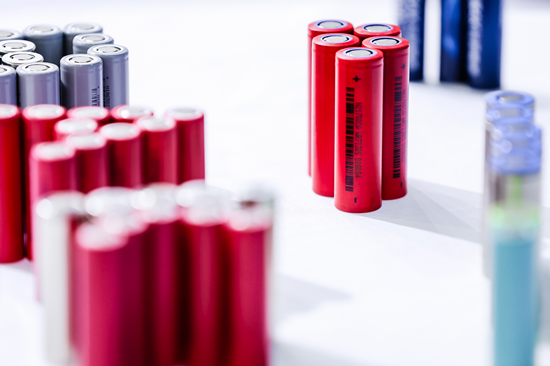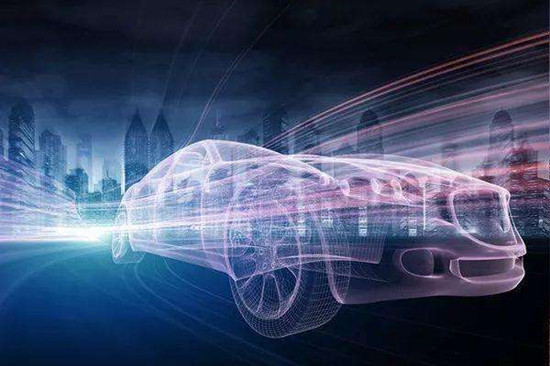Lithium battery types introduction
Jun 28, 2019 Pageview:990
Lithium batteries are the most commonly used cells for modern technology. Most of the equipment, such as laptops and gadgets, are powered by lithium batteries. Thus, it is a good idea to know more about them
How many types of lithium battery are there?
Mostly, there are six types of lithium batteries.
These are also referred to as lithium-ion cobalt batteries and lithium cobalate. These are made from cobalt and lithium carbonate. Since they have quite a high capacity, they are usually used for powering cells phones, electronic cameras, and laptops.
These batteries are equipped with a cobalt oxide cathode with graphite carbon functioning as the anode material. The lithium ions journey from the anode to the cathode as they discharge and in the opposite direction during charging.
These batteries have limited specific power. Devices powered by these batteries need to be charged more frequently.
Lithium manganese oxide
Also called lithium-ion manganese batteries, these are most notable for the high-temperature stability they have. They are safer compared to other types of lithium batteries. Thus, they are mostly used in medical equipment and other devices. They are also used for power tools.
Lithium iron phosphate
These batteries use phosphate and cathode and thus are benefitted from the low resistance properties. They offer thermal stability along with safety. These batteries are durable with a long lifecycle. You can store the fully charged batteries, and their lifespan would not be affected. They are also cost effective. However, they have less energy compared to other cells. They are usually used in electric motorcycles.
Lithium nickel manganese cobalt oxide
These batteries are provided with a cathode that is made from a combination of manganese, cobalt, and nickel. They can offer high specific power and high specific energy density. Keep in mind that they can have one of either property. These are mostly used in power tools and vehicles in the powertrains.
Lithium nickel cobalt aluminum oxide
While not very commonly used in the consumer industry, these batteries have found quite a bit of popularity in the automotive industry. They have a good lifespan with high energy. However, they can be quite costly and are not very safe.
Lithium titanate
These batteries have quite a fast recharge time owing to the advanced nanotechnology they use. They have low inherent voltage and low energy density. These batteries can be used in military andspecial. They can also be used for creating smart grids.
What are the differences among different lithium-ion battery types?
Quite a lot of differences lie between the different types of lithium-ion batteries.
For instance, lithium cobalt oxide has high specific energy when compared to the other types. This is the reason that it is mostly used for laptops and cell phones. Furthermore, it is also low in terms of cost and offers satisfactory performance. However, the battery also has a small lifespan and a low specific power.
On the other hand, lithium manganese oxide has moderate specific power and energy, along with a moderate level of safety compared to other types of lithium batteries. Furthermore, it is low in cost. However, it has a low lifespan, and the performance is low as well.
Lithium nickel manganese cobalt oxide has high specific energy, which is what makes it suitable for electric powertrains and vehicles. It has moderate specific power and safety. It offers an average performance in comparison to other lithium batteries. This battery can be optimized to have high specific energy or power, depending on the requirement.
The major disadvantage of lithium iron phosphate is that it has a low specific energy. Apart from that, it offers a reasonably moderate performance with high specific power and safety. It also has a high lifespan and is available at a low cost. It is usually used in those applications which need a high safety level with a long lifespan.
Lithium nickel cobalt aluminum oxide has a significant advantage in the form of high specific energy. It has a low level of safety when compared to the other types of battery and offers moderate performance and lifespan. The high specific energy, along with the moderate lifespan makes it the ideal choice for electric powertrains.
Lithium titanate has high safety, coupled with high lifespan and high performance. It has low specific energy compared to the other types of lithium batteries, but the moderate specific power makes up for it. The one disadvantage it has compared to the other lithium batteries is its high cost. However, it has a fast recharge time.
How to choose a better lithium-ion battery
Selecting the right lithium-ion battery for your project is of immense importance if you want to get the most out of it. If you wish to make sure that you select the best option available, there are some factors you will need to give attention to.
The energy density
Energy density refers to the availability of potential energy compared to the overall weight of the system. To make it simpler, if your application has a high energy density, it implies that the potential energy is high for a low amount of weight. Low energy density implies that your battery is heavy with less available power. You need to make sure that the battery you opt for has adequate energy density to power your project.
Power density
High power density implies that the device has the ability to sustain a high current for an extended period. While selecting the battery, you need to make sure that the power density of the cell is suitable for your application.
Durability
This is a highly important feature. The lifespan of the battery needs to be given quite a bit of attention. How durable do you want the battery to be? What type of conditions would it be subjected to? This determines the type of battery which would be suitable for your use.
The charge life and total life of the battery are essential as well. Charge life refers to the duration that the potential energy will stay until the battery trickles out. On the other hand, the number of charge cycles the battery can support is its total life.
The lithium-ion battery better for your use depends on your application and project.
- Prev Article: Talk About the Differencces Between Lithium and Alkaline Batteries
- Next Article: Solid state lithium ion battery
Leave Message
Hottest Categories
-
Hottest Industry News
-
Latest Industry News











